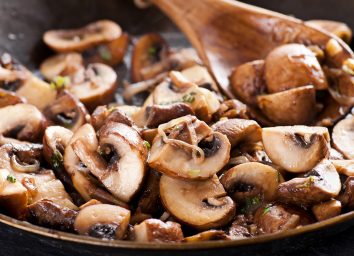Surprising Effects of Eating Mushrooms, Says Science
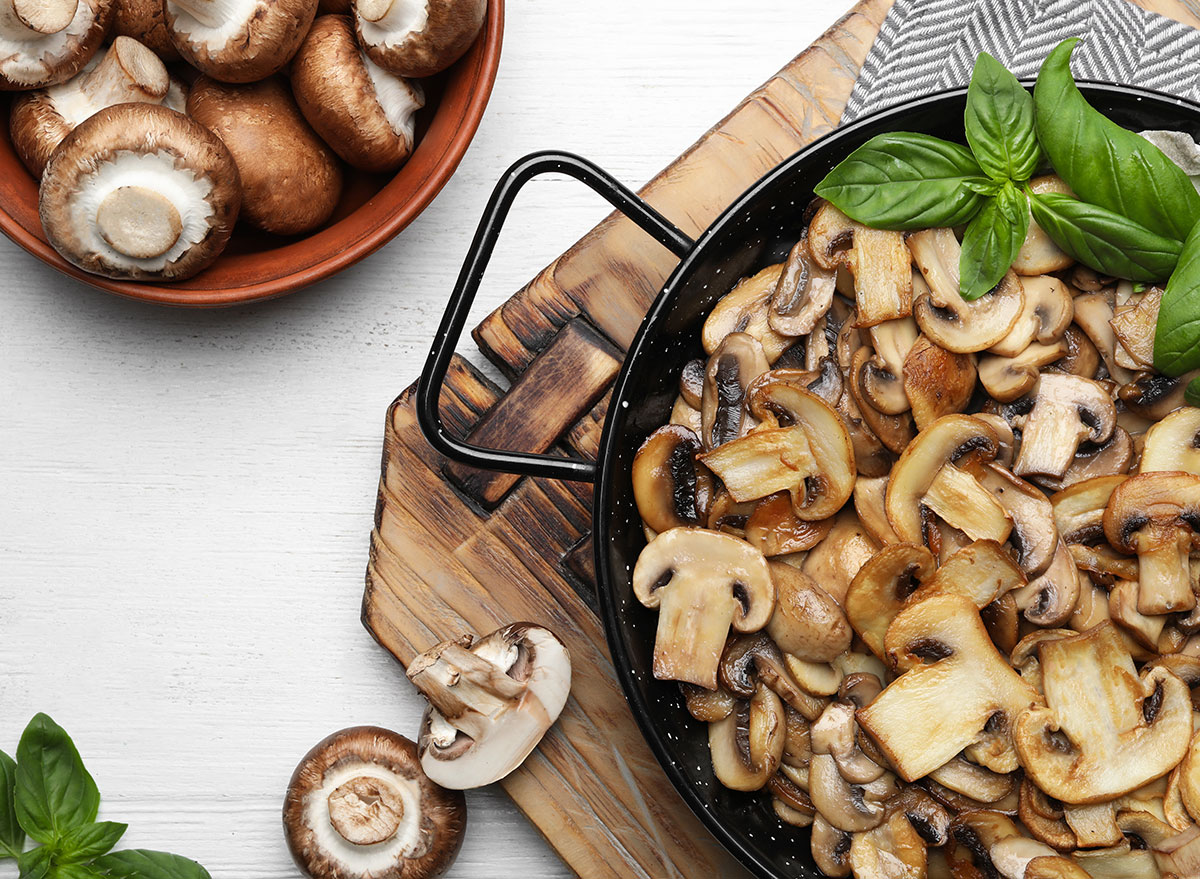
If you haven't hopped aboard already, it's time to join the 'shroom caboose. "Mushrooms are considered by many to be a superfood, and for good reason," says Kristin Gillespie, MS, RD, LD, advisor for Exercisewithstyle.com. "Although they are low in calories, they pack a powerful nutritional punch, containing rich amounts of fiber, vitamins, minerals, and antioxidants. Because of their rich nutritional profile, mushrooms are responsible for a variety of health benefits."
Riffing on that, Nicole Stefanow, MS, RDN, a culinary nutritionist from the greater New York City area adds, "If you want to do one thing for your health today, try adding a serving of mushrooms." We agree. And we think we'll start with one of these healthy mushroom recipes for dinner.
Below, a deep dive into all the amazing perks of eating mushrooms. Read on, and for more on how to eat healthy, don't miss 7 Healthiest Foods to Eat Right Now.
Mushrooms are surprisingly rich in vitamin D.
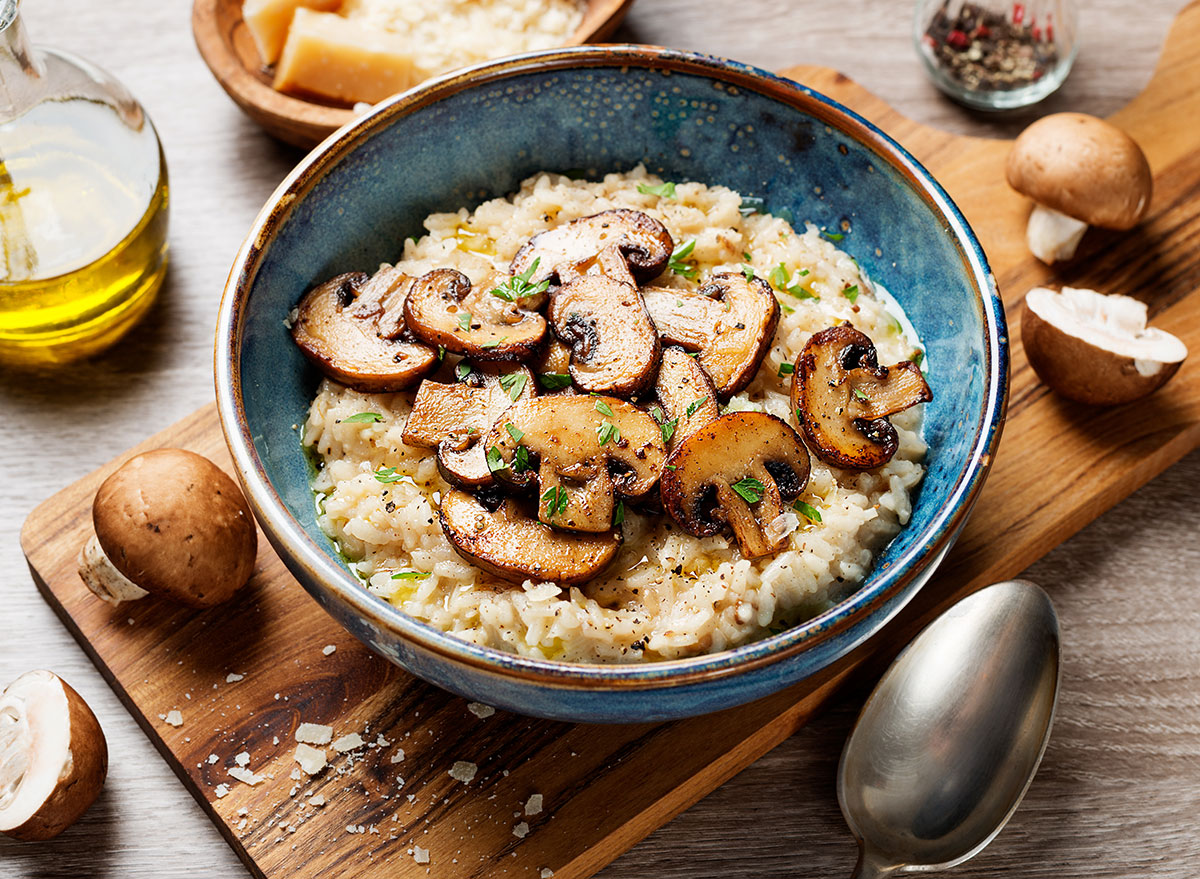
According to one review that looked at data from 2011-2012, 41.6% of adults in the United States are deficient in vitamin D. Yikes! While the best natural source of vitamin D is good ole fashioned sunshine, mushrooms are magic for the essential nutrient: "A recent study conducted in Australia found that mushrooms could provide anywhere from 50-100% of our daily vitamin D needs," says Gillespie. "Vitamin D deficiency, which is very common among Americans, is associated with fatigue, compromised bone health, reduced immune function, and increased risk of chronic illness including certain types of cancer. By offering significant amounts of vitamin D, mushrooms can help combat these symptoms associated with a deficiency."
They help fill gaps in your diet.

Tasty and nutritious sounds like a win-win to us. "Mushrooms are a great source of many micronutrients that are often under-consumed in the typical U.S. diet," shares Stefanow. "According to a recent study, adding a serving of mushrooms can help you meet your micronutrient requirement without increasing calories, fat, or sodium."
They fight inflammation.

Ready to combat inflammation? Bring on the mushrooms. "Mushrooms offer anti-inflammatory properties as well. Mushrooms are rich in selenium, a nutrient that has powerful antioxidant properties that help reduce inflammation," says Gillespie. "Oyster mushrooms, as compared to other mushroom variations, offer further anti-inflammatory properties as a result of their rich beta-glucan content." For more anti-inflammatory superfoods, check out this guide.
They support bowel health.
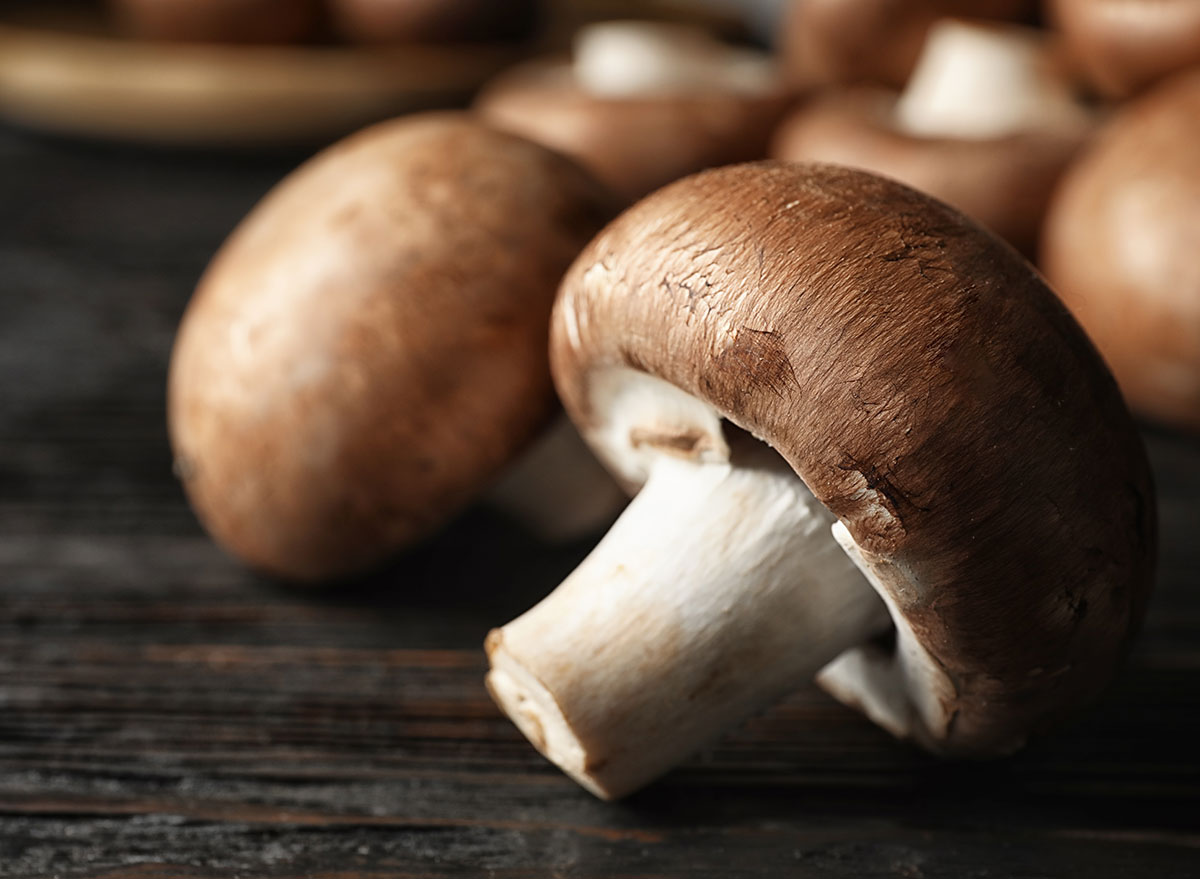
Good gut health is so important to overall health. Thankfully, mushrooms can assist on this front, too. "This may not come as a surprise given their significant fiber content; however, many studies have also demonstrated their effect as powerful prebiotics," says Gillespie. "Prebiotics not only help promote digestion and overall gut health, but they also promote a variety of other health benefits."
They also may help with diabetes. Krissy Carbo RD, MS, CDN, points to this study and this study on shitake mushrooms and diabetes, saying, "Studies have shown shiitake mushrooms to favorably alter gut bacteria to improve the production and release of insulin from your pancreatic beta-cells (a.k.a. the cells responsible for insulin production."
They may reduce your risk of being depressed.
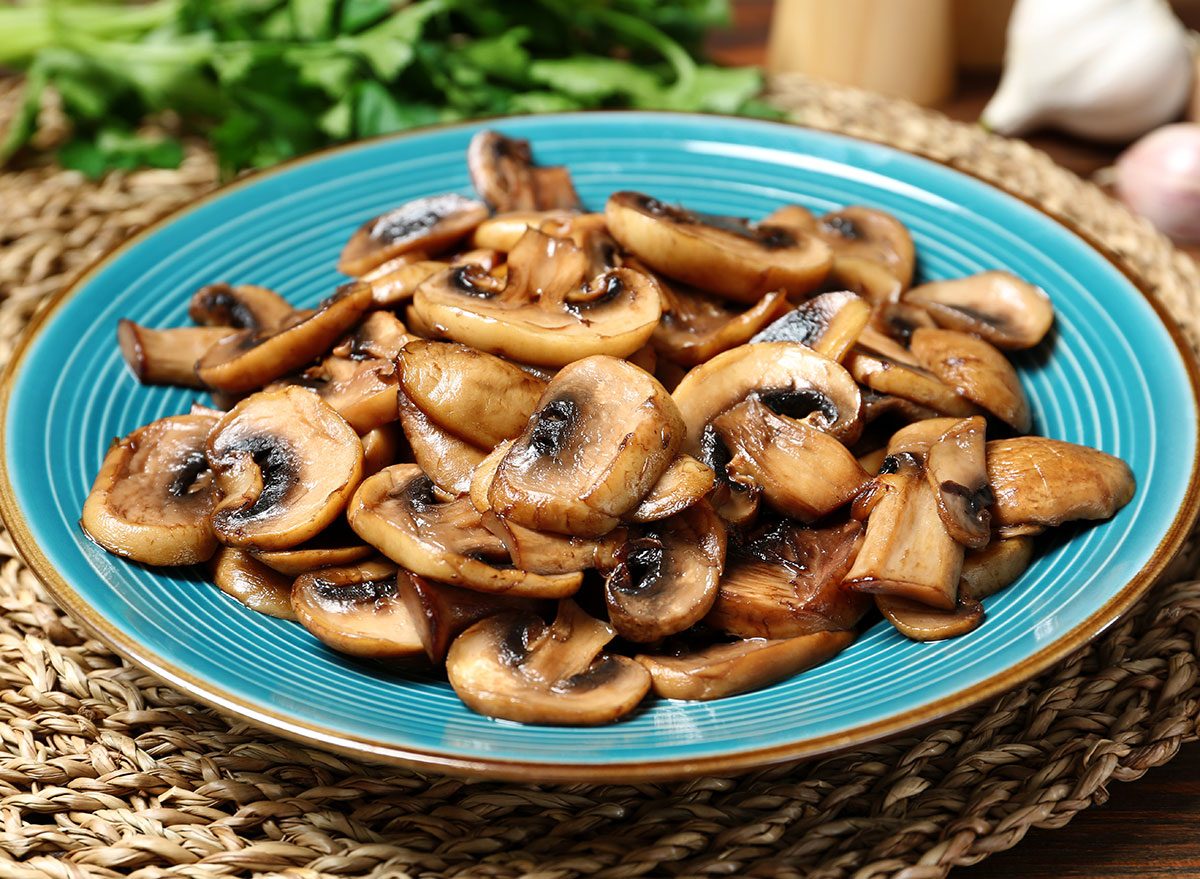
Of course, no one food is going to cure mental health disorders, but there's some evidence that coupled with a healthy diet, mushrooms may be a boon for supporting your noggin. "People who eat mushrooms may have lower odds of developing depression, according to recent research," says Stefanow. "The researchers attribute this to the many bioactive compounds that make up mushrooms, including Vitamin B12, antioxidants, and anti-inflammatory compounds."
They help support immunity.
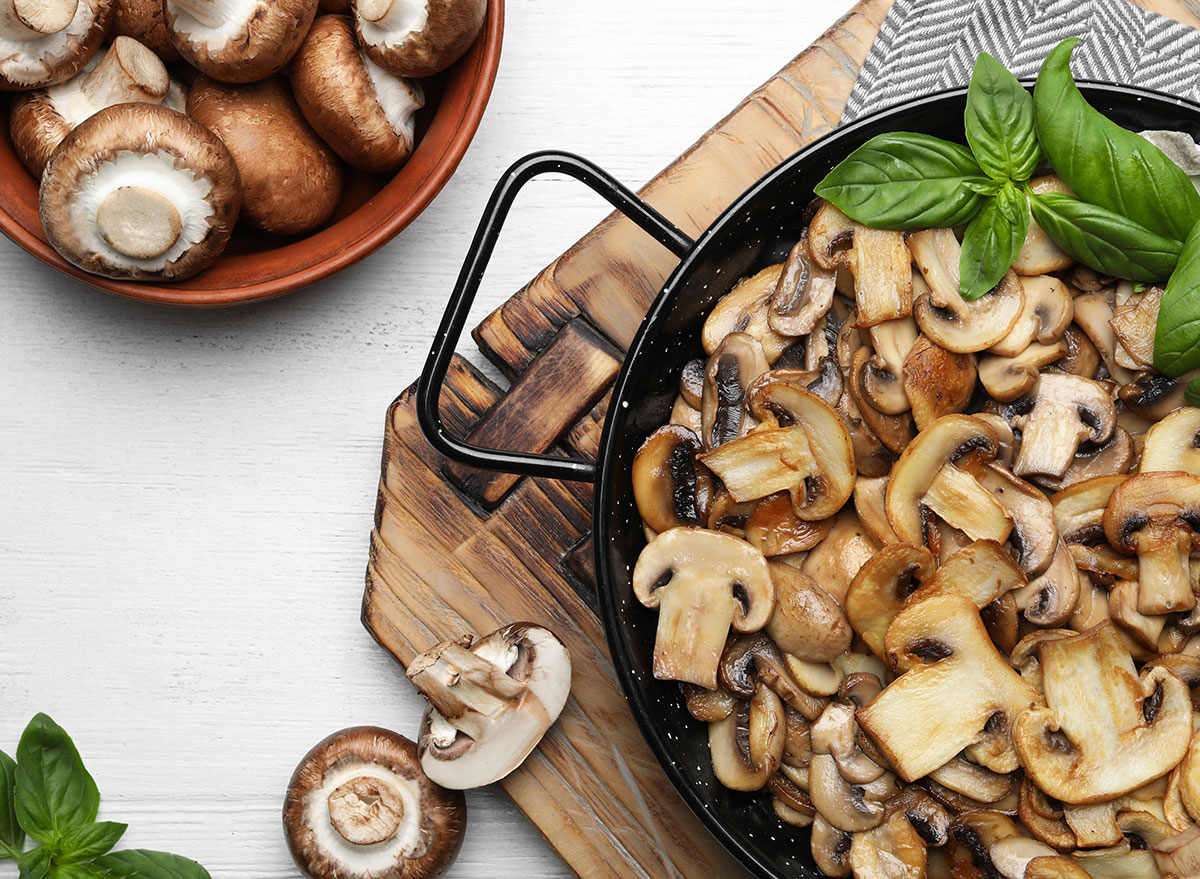
Love mushrooms? Your immune system is grateful. "Mushrooms are the epitome of the food-as-medicine concept. They have been used for their medicinal properties for over 2,000 years," says Marie Ruggles, MS, RD, CN, CDE, author Optimize Your Immune System: Create Health & Resilience with a KitchenPharmacy, noting that from a cooking perspective, they add an amazing culinary element to soups and stir-fries. "Medicinally, they contain compounds that activate immune activity at many levels—akin to one group of soldiers simultaneously fighting seven battles. Mushrooms are known for their wide array of bioactives, most notably their immune-enhancing beta-glucans," she continues, pointing to this research. For all these reasons and more, Ruggles recommends consuming mushrooms in your meals at least twice weekly.
Read this next:
